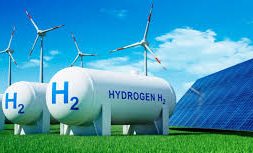
WASHINGTON: Ilhan Omar, the first-term representative from Minnesota, is moving to stop the Trump administration from what she says is flagrant abuse of a Department of Energy loan program intended to promote renewable energy.
Specifically in her sights is the Appalachian Storage Hub, or ASH, a $10 billion project that stands to benefit from such a loan. Other energy projects supported by the Trump administration could also stand to lose out on federal loans if Congress endorses Omar’s proposal, which will be voted on this week.
The loss of ASH would be a significant blow to Trump’s promise of restoring Appalachia’s economic prospects. Comprising an enormous network of pipelines, storage caverns and manufacturing plants encompassing 500 square miles across 50 counties in West Virginia, Ohio and Pennsylvania, the program has been envisioned as a “petrochemical empire” that employs 100,000 people, according to one estimate by an industry group. That empire will involve transporting fracking byproducts called natural gas liquids from the shale plays of Pennsylvania and New York and turning them into the stuff from which everyday plastics are made.

A virtually unnoticed amendment to the House Appropriations bill introduced by Omar, however, could stop the mammoth project — and prevent the Trump administration from supporting similar initiatives in the future through the Department of Energy, currently headed by Rick Perry. During his time as Texas governor, Perry was a fracking booster, and as a member of the Trump Cabinet, he has pushed to bolster fossil fuels.
The House is expected to vote on that amendment, and others, later this week. “Rep. Omar’s amendment is an important tool to ensure that the Department of Energy fulfills its responsibility to use Title XVII loans only for the purposes Congress originally intended,” a Democratic aide on the House Appropriations Committee told Yahoo News. “The language of the amendment sends an unmistakable message that the administration must follow the law with these loan guarantees.”
ASH will be a nexus of several industries supported by Trump, and it will be built in a region critical to his political prospects next year. Critics, however, charge that the project is ill-considered, and concerns about pollution have already led some to grimly brand the Ohio River Valley, where coal’s legacy still scars the land, Cancer Valley.
The federal Department of Energy has indicated that it will give $1.9 billion in loan guarantees to complete ASH (the loan guarantee has not yet been formally agreed upon, but the process has been in the works for the last year, and has been moving forward). The expected loan will come from Title XVII, a program that began in 2005, when George W. Bush was president. It was meant to reward “innovative” technologies, but did not stipulate that those innovations had to be in the renewable sector. In his 2009 stimulus package, President Obama retooled the loan program for “rapid deployment of renewable energy,” in keeping with his plan to revive the economy after the 2008 housing and mortgage crisis by focusing on renewable sources like wind and solar energy.
Obama’s version of the program, however, ended in 2011. Officials in Trump’s department of energy believe they are acting fully within the letter of the law by funding projects that are not strictly based on renewable sources.












